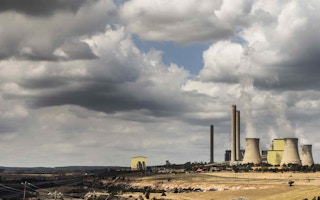A long-term bipartisan climate policy is ready to emerge from the ashes of Australia’s decade-long “policy bonfire”, according to a new report from the Grattan Institute.
The institute thinks the conditions are right for the Coalition and Labor to agree to a long-term climate action plan, which would first involve the federal government modifying its current safeguard mechanism.
Grattan Institute Energy Program director Tony Wood said an economy-wide carbon price was the most “ideal” policy instrument, however both pragmatism and urgency dictated that a “next-best” approach be pursued instead.
“Our assessment of Australia’s climate change options against a range of criteria indicates that none is perfect and that trade-offs are needed to ensure that both major parties are heading towards the commonly agreed objective,” Mr Wood said.
Noting that the Coalition had focused on avoiding any policy that could be construed as “a tax” as well as minimising consumer price impacts, the report looks to the government’s safeguard mechanism, which it says can be strengthened and expanded to drive down emissions. Labor could then take the Coalition’s policy framework to transition to its preferred emissions trading scheme.
Under current policy settings it was unlikely the government would meet its climate goals beyond 2020, the report said.
The Grattan Institute recommends the government take three steps:
- tighten emissions limits of the safeguard mechanism to be in line with Australia’s international commitments, and have better enforcement than present
- auction tradeable permits so those who outperform can sell to underperformers, incentivising action from those who are best-placed to reduce emissions cheaply, and have a target trajectory to 2030
- within 10 years expand the safeguard mechanism to cover more emitters while reducing baselines to zero and replacing them solely with permits
For the electricity sector, the report recommends installing an intensity baseline based on volume of emissions per megawatt hour. Lower-emissions sources would generate credits, which high-emissions sources like brown coal would need to purchase. This would create an incentive for reducing emissions in the sector.
The report recommends that emitters be able to purchase international carbon abatements, but that a limit should apply. It also says low-income households and some trade-exposed businesses should be compensated.
“With bipartisan agreement that Australia must move to a low-emissions economy, all we need now is a clear and workable plan for how to get there,” Mr Wood said. “This report aims to provide it.”
This story was republished with permission from The Fifth Estate.










